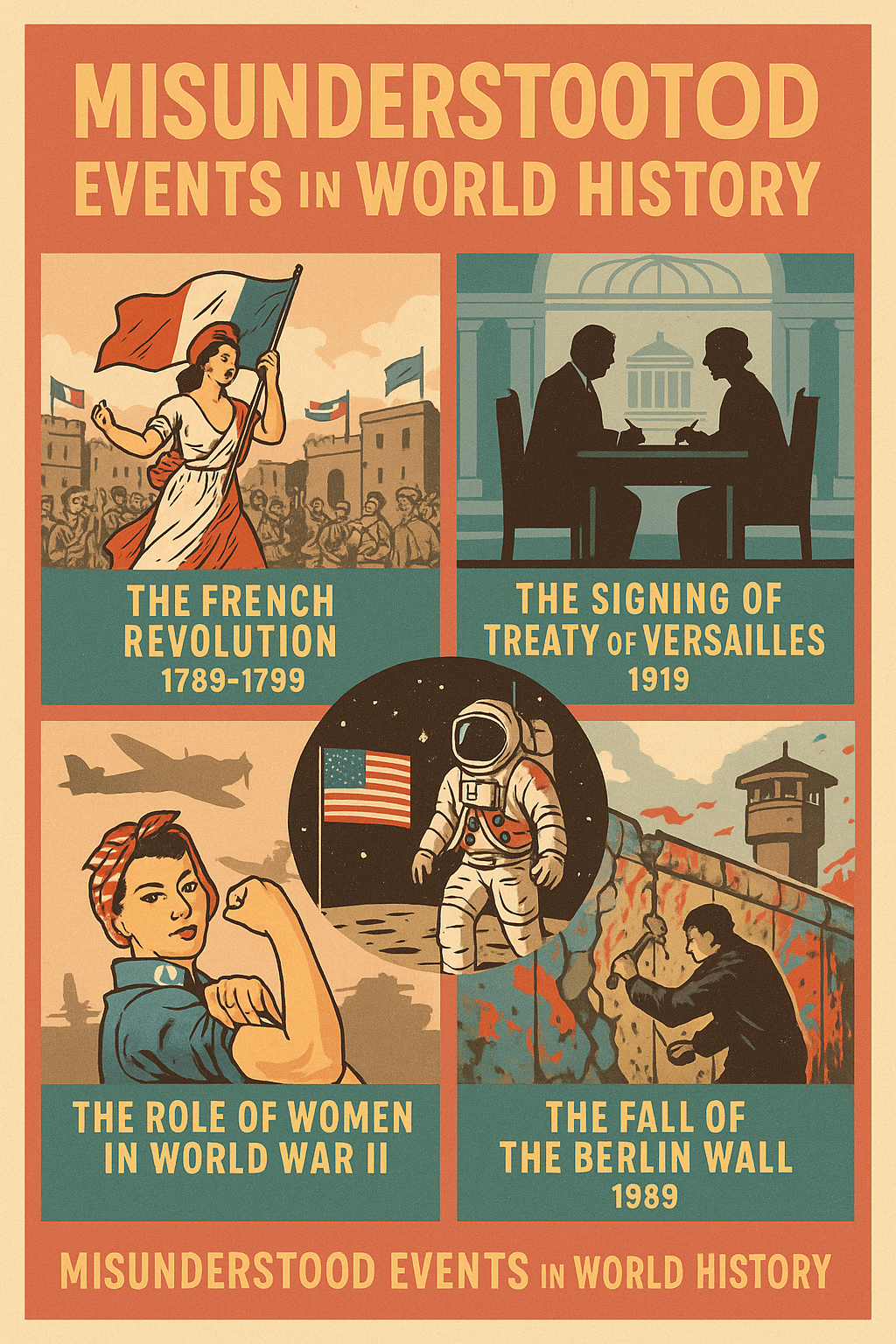Throughout history, many events have been widely misunderstood, altered by time and retelling. Understanding these misunderstood events in world history is crucial to grasping the complexities of our past. In this article, we will explore some significant events that have faced misconceptions, examining their true nature and impact.
What Are Misunderstood Events in World History?
Misunderstood events in world history refer to historical events that are commonly misinterpreted or misrepresented. This misunderstanding can be due to various factors, including biased accounts, cultural narratives, or the passage of time that obscures facts. For example, many people have misconceptions regarding the scope and impact of events like the French Revolution and the fall of the Berlin Wall.
Why Do Historical Misconceptions Occur?
1. Selective Storytelling: Histories are often told from specific perspectives, leading to a one-sided view.
2. Lack of Education: Insufficient education on certain topics can lead to and propagate misconceptions.
3. Cultural Narratives: National pride and identity can shape how events are portrayed historically.
Understanding these factors can help unravel why certain historical events are misunderstood today.
Significant Misunderstood Events in World History
Here are some of the most misunderstood events that have shaped our world:
1. The French Revolution (1789-1799)
Contrary to popular belief, the French Revolution was not merely the rise of the common man against royal tyranny. While class struggle played a vital role, many underlying factors contributed to the revolution, including economic hardships and Enlightenment ideals. It resulted in significant societal changes that have influenced democratic principles worldwide.
2. The Signing of the Treaty of Versailles (1919)
Often viewed as a peace agreement, the Treaty of Versailles has been criticized for laying the groundwork for World War II. The punitive nature of the treaty placed heavy reparations on Germany, fostering resentment and facilitating the rise of extremist political movements.
3. The Moon Landing (1969)
The moon landing is frequently subject to conspiracy theories, leading to widespread skepticism regarding its authenticity. However, the event marked a monumental achievement in human history and set the stage for future explorations of space. According to NASA, this landing demonstrated technological prowess and international cooperation.
4. The Role of Women in World War II
Many remember World War II as a time when women were merely caretakers at home. In reality, women played crucial roles in various capacities, from being factory workers to serving as members of the military. Their contributions helped reshape societal roles, leading to increased rights and employment opportunities for women post-war.
5. The Fall of the Berlin Wall (1989)
While many consider the fall of the Berlin Wall as a victory for democracy over communism, it’s essential to view it through a global context. Many misinterpret its aftermath, which involved economic struggles and political division in post-unification Germany. The wall’s fall represents a complex interplay of ideology, not just a straightforward triumph.
How to Debunk Historical Myths?
Debunking historical myths is essential for a more accurate narrative of events. Here are some steps:
1. Research Reputable Sources: Always consult credible sources like academic portals (Google Scholar) or government databases (Data.gov).
2. Cross-Reference Information: Look for multiple accounts of the same event to identify discrepancies and common truths.
3. Engage With Experts: Seek out historians or scholars specializing in particular eras or events.
By applying these steps, individuals can foster a deeper understanding of historical narratives.
Conclusion
Misunderstood events in world history shape our perspectives and play a significant role in how we navigate contemporary issues. By exploring and analyzing these events, we enrich our understanding of the past. It is essential to view history through a multi-faceted lens, acknowledging the complexities involved. For anyone interested in further exploring this topic, we encourage you to learn more about historical events or stick to reputable resources to deepen your understanding.
References:
* According to NASA, the Apollo 11 mission was a monumental achievement in human space exploration.
* For more on economic policies during the Treaty of Versailles, see historical analyses on Google Scholar.
Summary of Misunderstood Events in World History
This article explored some of the most significant misunderstood events in world history, offering insights and alternative perspectives. It discusses why these misconceptions occur and suggests methods to debunk historical inaccuracies. Understanding the complexities of these events enhances our appreciation for history and its continuously evolving narratives.
